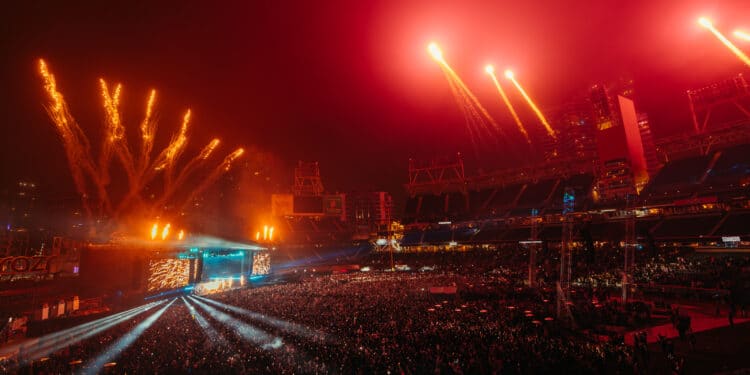Insomniac has accused Club Space’s remaining owners of breach of contract, misuse of corporate assets, and bad faith conduct in its complaint.
Six years after it acquired a majority stake in Club Space, leading US dance music promoter Insomniac has filed a lawsuit against the Miami venue’s remaining owners on the grounds that they broke multiple laws while attempting to cut it out of their dealings.
The complaint, filed in a Florida district court on August 4, accuses defendants Davide L. Danese, Jose Coloma Cano, David E. Sinopoli, and their respective companies of bad faith conduct, breach of contract, and misuse of corporate assets. On a phone call with EDM Identity, Jordan Shaw of Shaw Lewenz — the firm representing Insomniac — said that the amount sought in damages will be determined at a later time as expenses continue to accrue.
According to the lawsuit, Club Space was mismanaged prior to the 2019 merger, and Insomniac has since helped Danese, Cano, and Sinopoli increase the venue’s annual revenue by more than 700%. As such, it was a no-brainer for them to team up on events at another Miami club called Factory Town, which Insomniac says it singlehandedly renovated from an old mattress factory.
That’s around the time things went south. Insomniac alleges that Danese, Cano, and Sinopoli initially signed agreements around the Factory Town partnership but rescinded them and “began making outrageous demands for millions of dollars” and “increased ownership percentages” while Insomniac footed the bill for the project. The suit claims that they threatened to file a lawsuit that included a smear campaign against Insomniac Founder Pasquale Rotella for leverage.
Insomniac went into mediation with Danese, Cano, and Sinopoli. The promoter claims that it thought it had reached a resolution two separate times before negotiations broke down. While a hearing was still pending, the defendants allegedly took almost $3 million out of a company account without notifying Insomniac or the judge. Insomniac alleges multiple other breaches of contract, suggesting that Danese, Cano, and Sinopoli were quietly working with billionaire Club Space property owner Justin Lavine to cut the promoter out of their dealings.
“It got to a point where we had to protect not just our reputation in Insomniac, but also the reputation of Club Space and the trust of the community who is buying tickets to our events,” said Shaw. “We also have obligations to the employees of Club Space and, of course, the people who rely on us for jobs and consistency in the community, and we have accountability to our shareholders.”
Broad swaths of the publicly accessible copy of Insomniac’s lawsuit against Danese, Cano, and Sinopoli are redacted. It is common for redacted passages to obscure details meant to be kept confidential as part of agreements reached through previous mediation.
Bruce Weil of Boies Schiller Flexner — the firm representing the defendants — told EDM Identity that Insomniac has misrepresented numerous aspects of the feud. He said that “the smear campaign [accusation] is false,” arguing that “there’s already a public outcry against Insomniac for the manner in which they do business on social media.”
In regards to Factory Town, Weil rejects the notion that Insomniac bore the sole burden of getting the space event ready, saying that the defendants were “making money there before any renovations” until “they bullied us out.” And when asked about the breakdowns in mediation, he claimed that Insomniac “sabotaged our ability to perform” by ignoring “email after email,” which he says amounted to “continuing, intentional, and planned breaches.”
“Almost everything in their complaint is a lie by the documentary evidence we have,” said Weil. “In today’s world, it’s all emails and text messages. It’s all documented, who did what to whom. Their complaint is just a defense mechanism trying to manipulate us into a settlement — and by the way, we are having settlement talks, but my client’s not going to be bullied.”
No dates have been set for upcoming proceedings in Insomniac’s civil case against Davide L. Danese, Jose Coloma Cano, and David E. Sinopoli at the time of writing.








